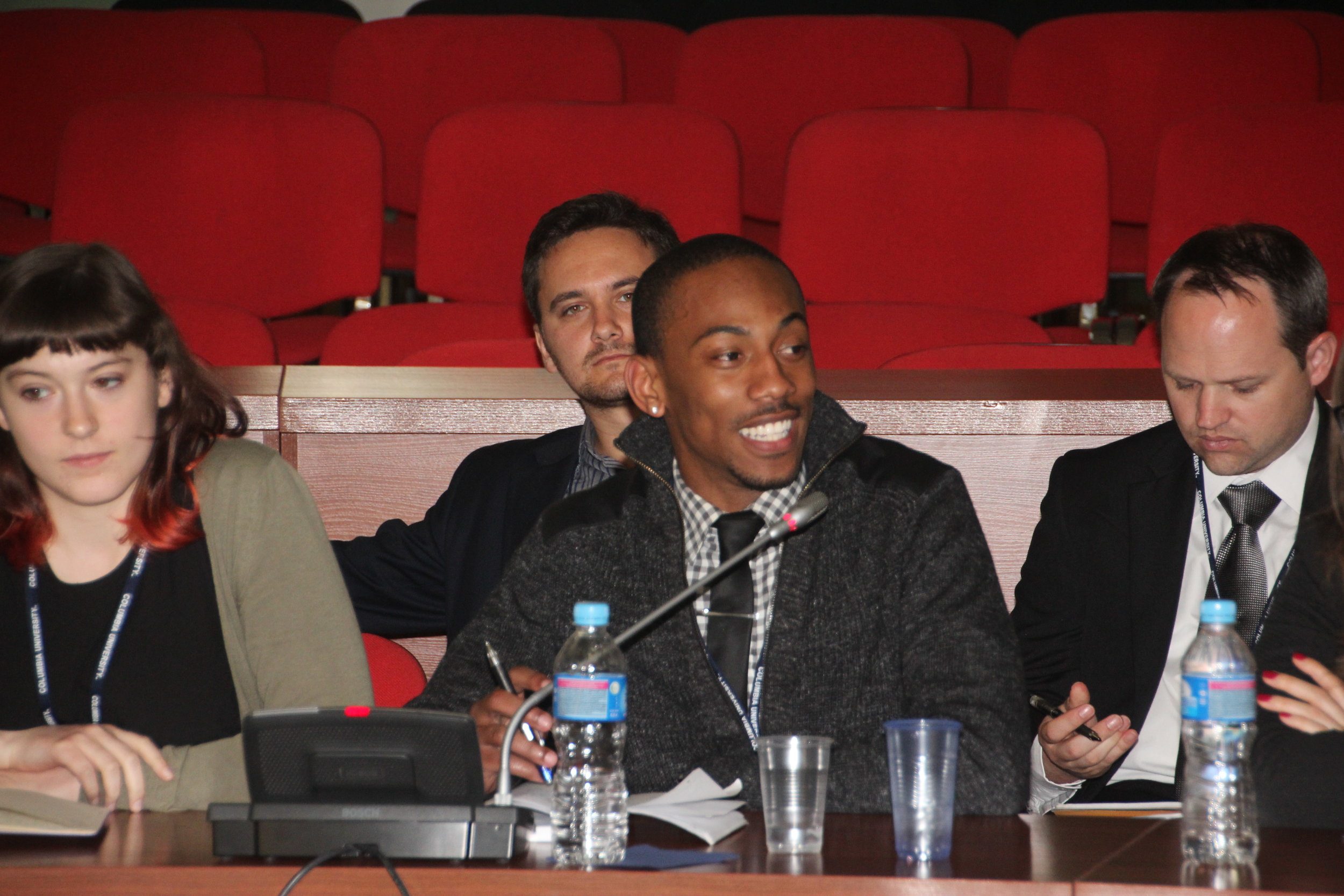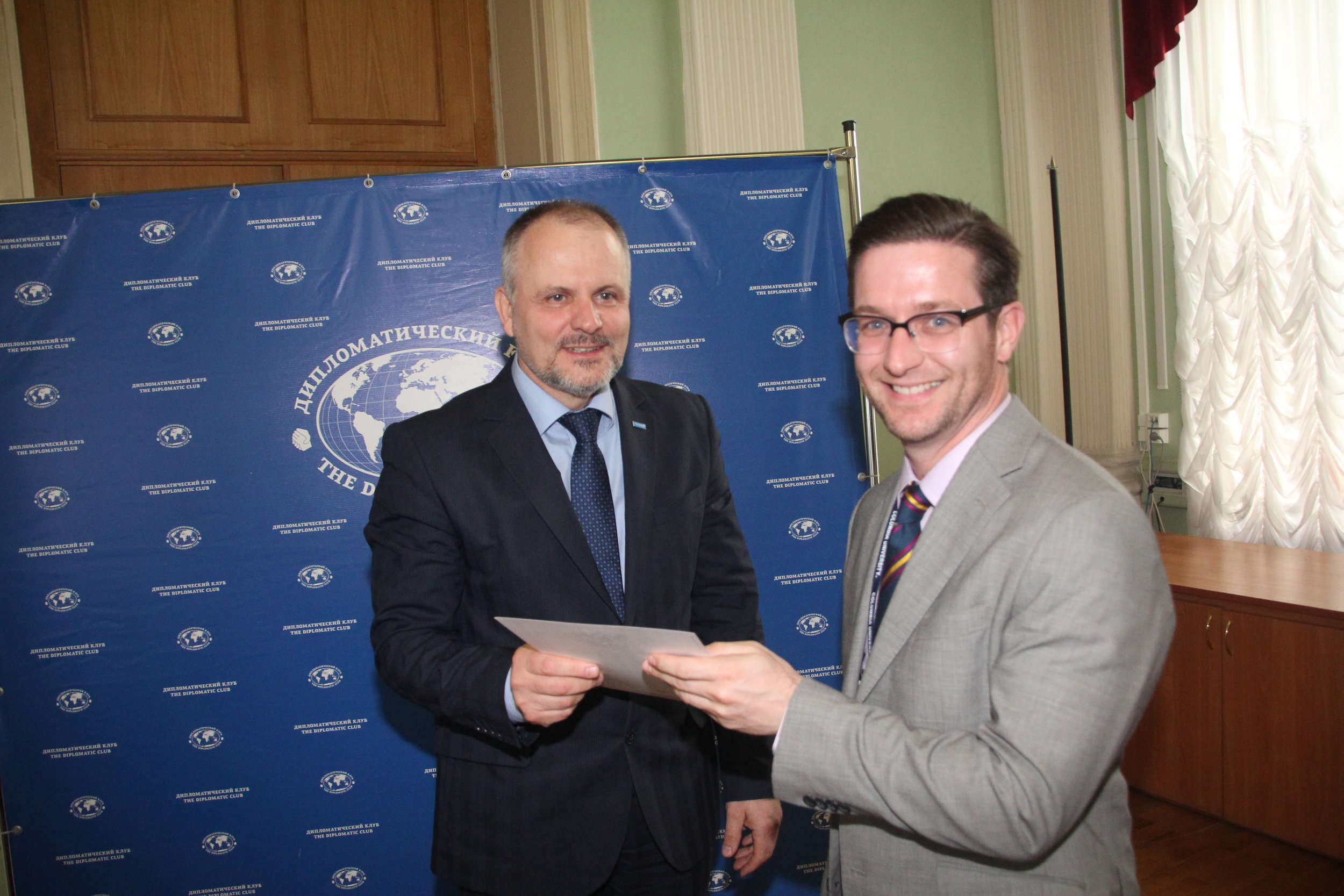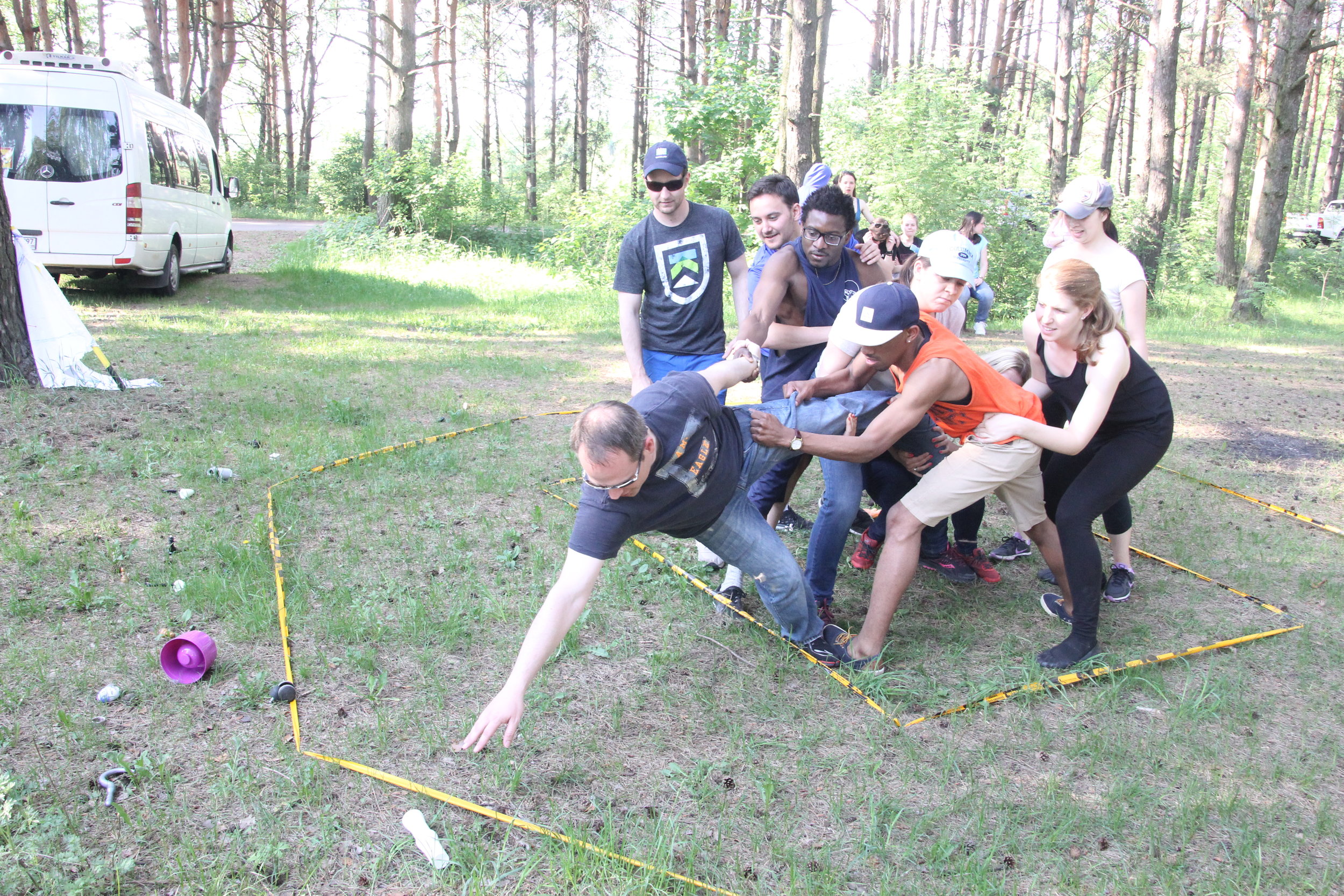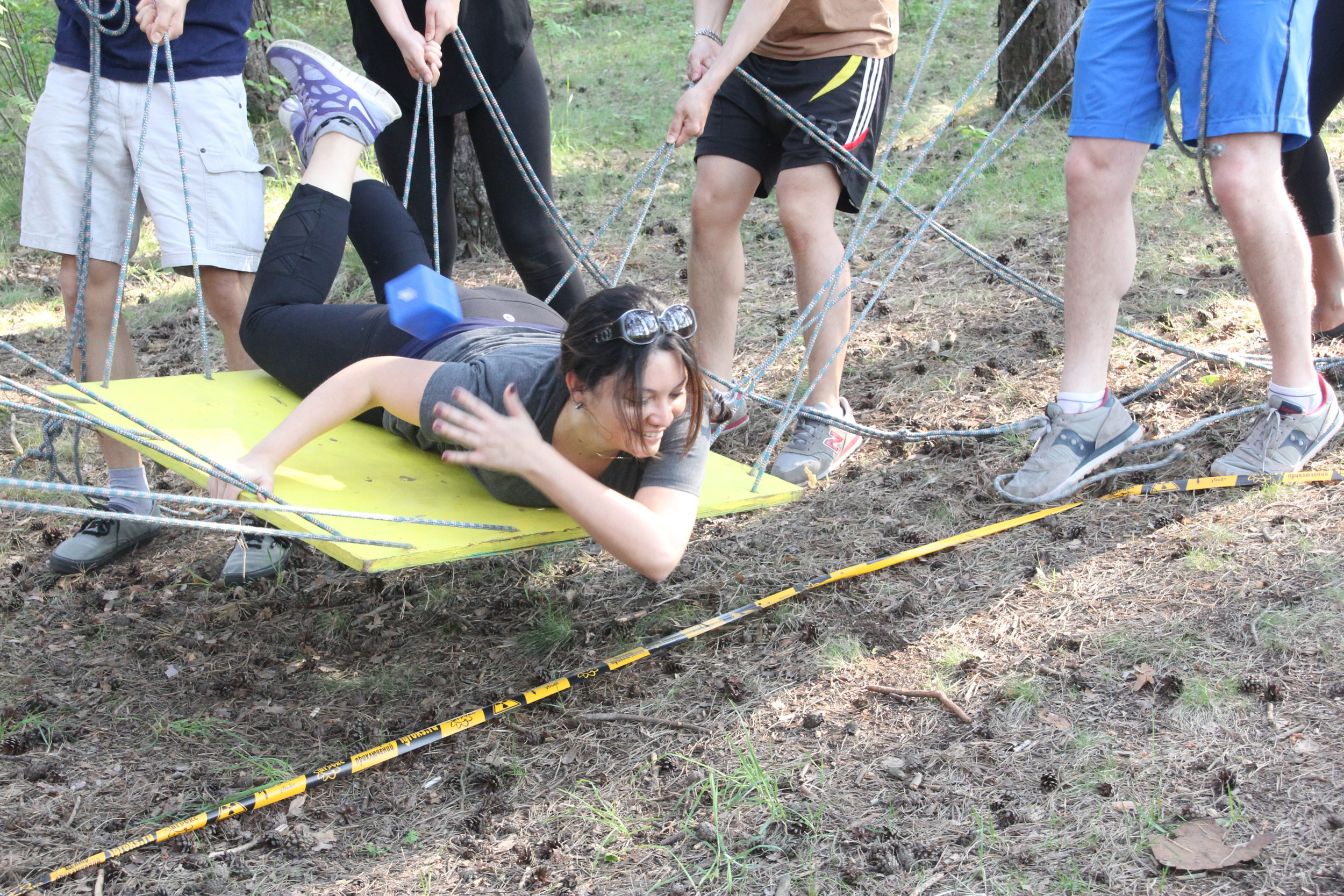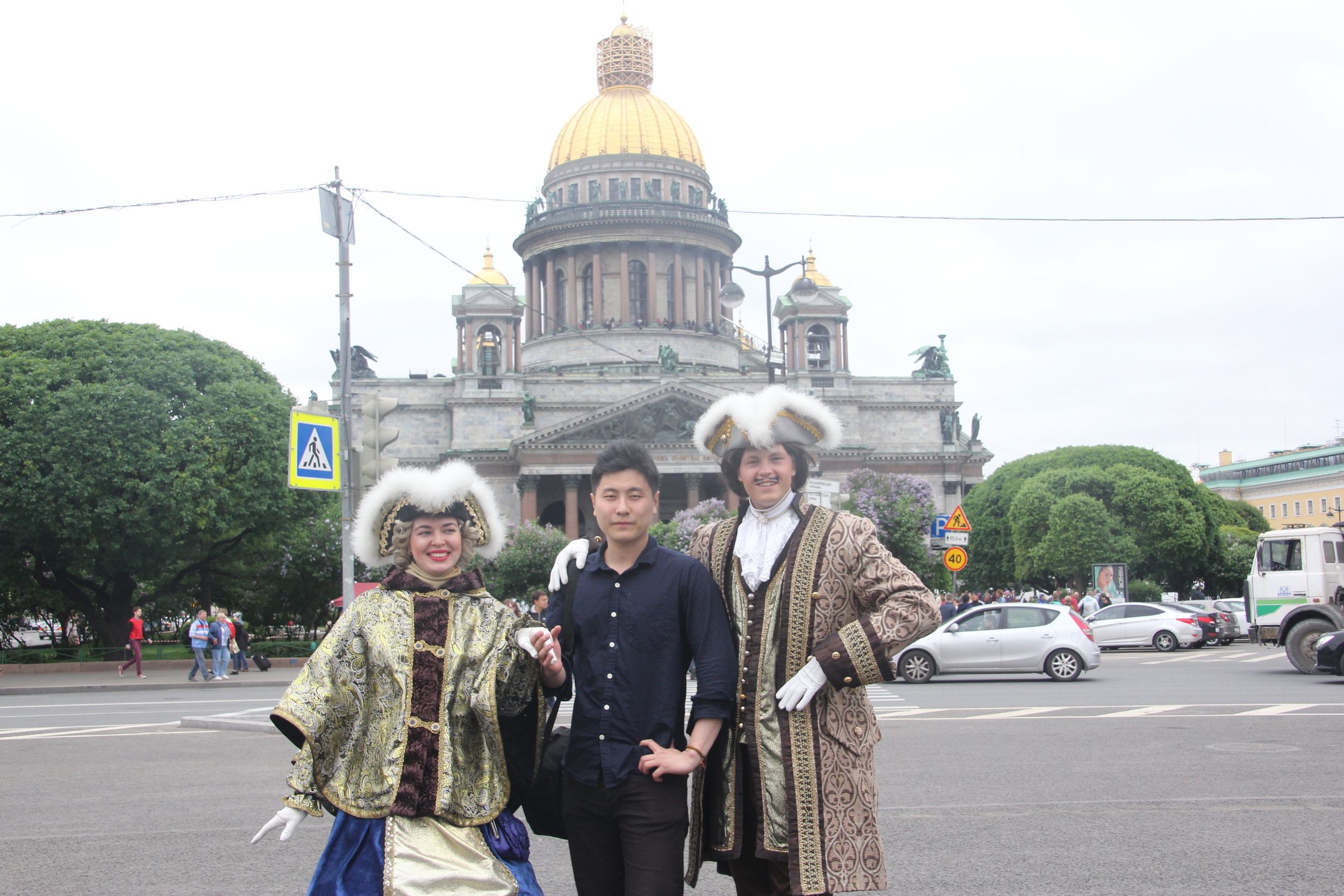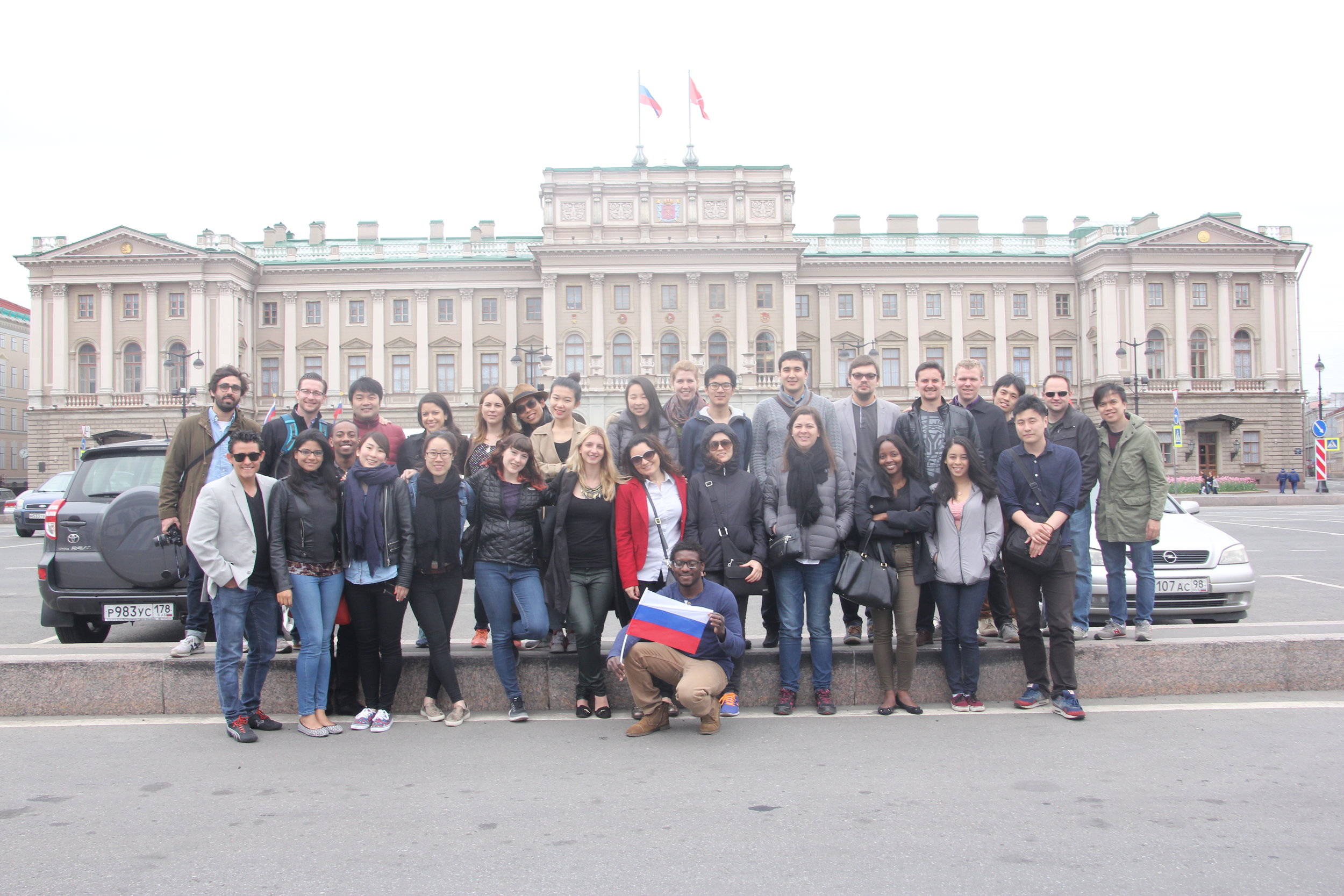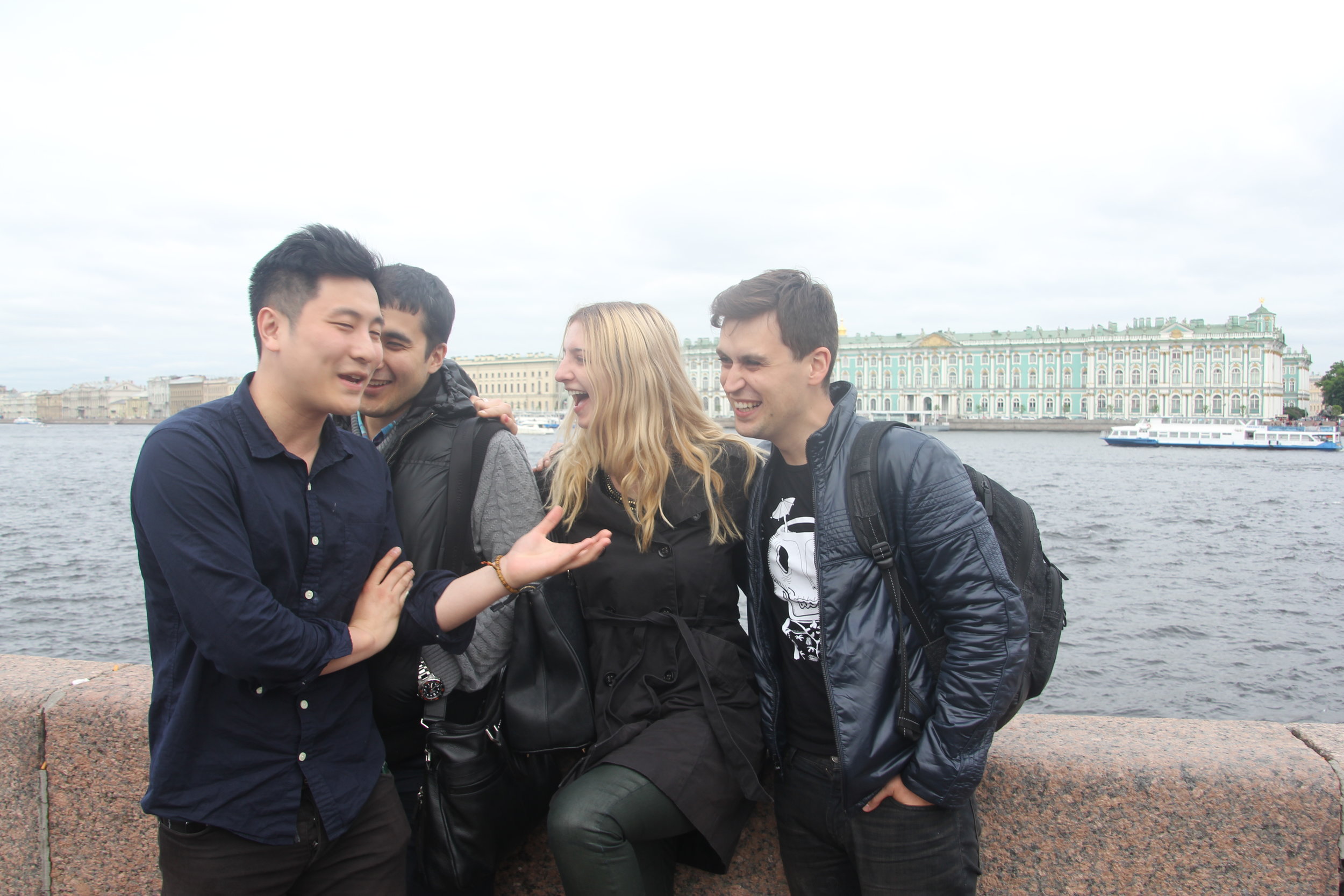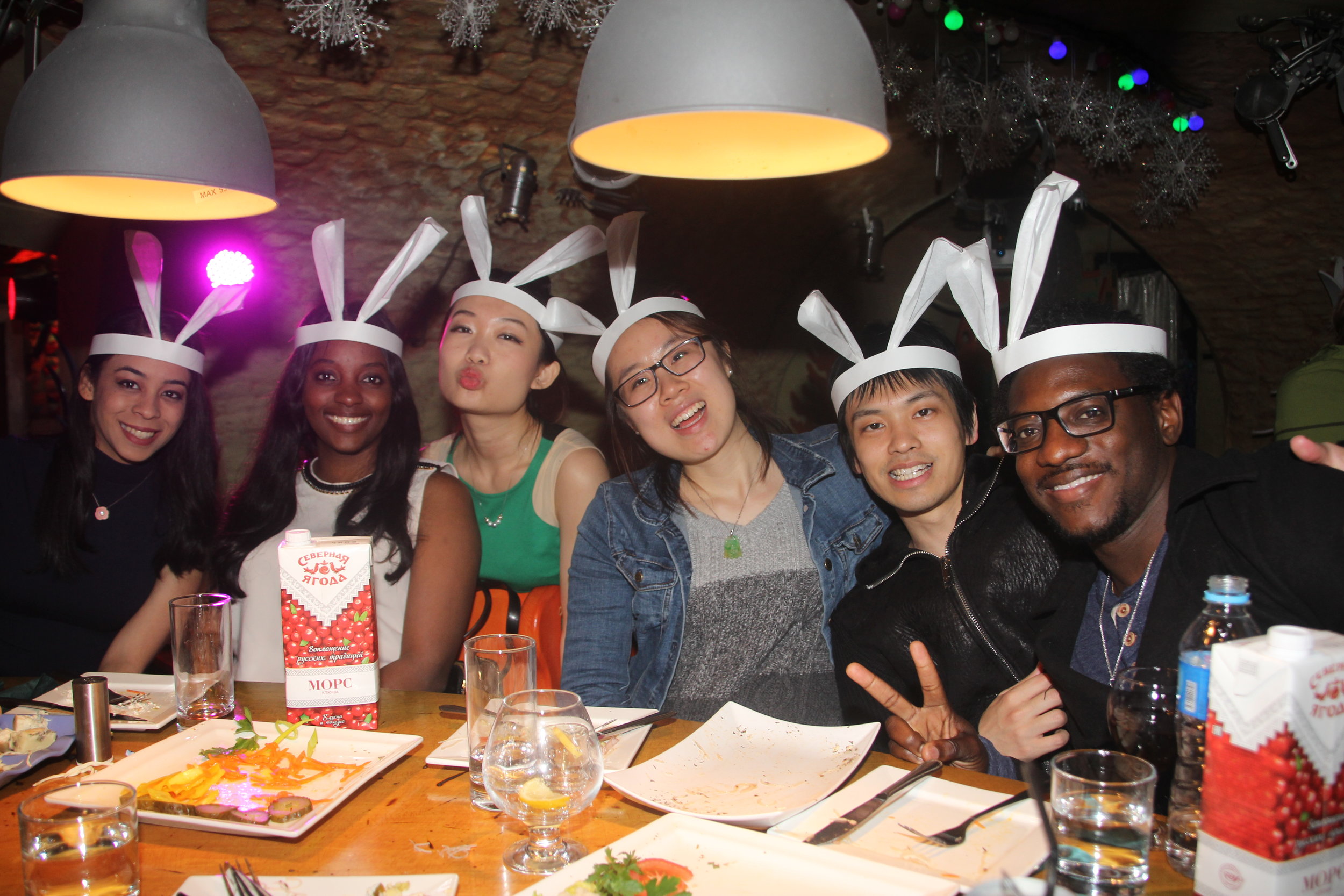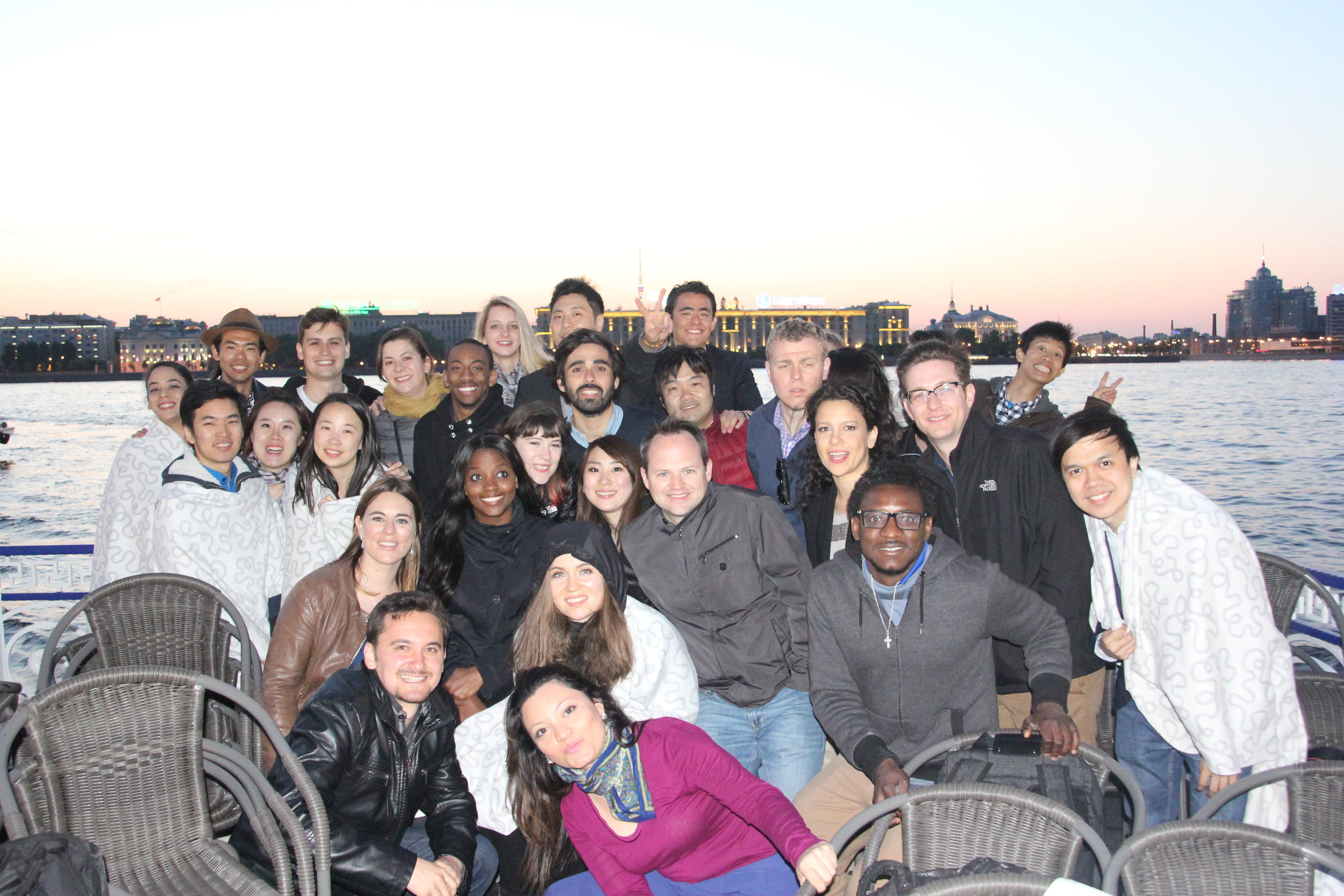Scary and Revealing Times in Russia
Blam! They had not been in Russia for two days before it got scary. A century-old bunker door slammed shut behind the American students. The two Russian tour guides started hooting and hollering, to mimic the chaos of being attacked. “I almost had a panic attack…it was an experience I will always remember”, says Maria Rojas-Lira, the lone Columbia Teacher's College student. In the cool, damp narrow tunnels of the old Russian bunker in Moscow, students from SIPA, teacher’s college, Columbia business school and the medical school were buried underground with two colorful Russian bunker guides and their questionable sense of humor: in a simulation exercise, the guides were tickled when two student volunteers, Justin Fabia and Michael Higgins, turned two separate keys Goldeneye-style to “bomb a place at the turn of a key”, most likely a US city. Mariko Haneda, one of the students, having observed the students exchanging inquisitive glances, wondered what could have been so funny. Humor, she thinks, draws some of the clearer lines between cultural differences, which was evident on that cool May day.
“Bunker 42,” a Cold War Museum, offered excitement, but also some unintended relaxation. The student’s jet-lag combined with a tiring 200-foot descent into the cool tunneled underbelly of Moscow made the students sleepy. While watching the “propaganda-style video,” about 90% of the students dozed to sleep in their chairs, according to Andrew Chang.
Overall, 37 students participated in the trip scheduled for May 22, 2016 – June 1, with five days in Moscow and five in St. Petersburg. The itinerary, shown below, would include tours of Russian chocolate factories, open discussion with Russian policy school students, language courses, circus shows, Russian ballet, bath houses, team building, boat tours of St. Petersburg and, of course, Cold War bunkers.
The Students' itinerary
The Russia excursion (officially titled, “Discovering R.U.S.S.I.A, Cultural Immersion Trip”) was planned by a second-year SIPA student Ilya Karnaukhov, the SIPASA Student Life chair and organizer-extraordinaire, who, after himself going on an official trip to Israel, was compelled to show other students Russia first-hand. “Second-hand Russia” is what students are usually exposed to by reading “numerous Russian phobic articles.” When students were asked for words to typify Russia they offered the following: “Underdeveloped,” “Bleak,” “Stern,” “Depressing,” “Communism,” “Gangster Guys,” “Tough,” “Impoverished,” “Scary,” “Organized Crime.”
Mostly negative. Ilya made a point to introduce the SIPA students to their Russian counterparts – off to the Russia’s Diplomatic Academy!
Round Table Discussion
The SIPA (et al) students listened respectfully and happily to essays written by seven Russian students from the Diplomatic Academy: the Ministry of Foreign Affairs of the Russian Federation. The collective speeches lasted an hour (the whole video can be viewed here) before SIPA students were able to respond with some thoughts.
There were certain themes which clearly shined through in the presentations, namely
- national pride,
- that the West does not view Russia to be on equal footing, and
- that the West tries to impose liberal values on Russian values in exchange for a seat at the table:
The touching of national pride is best on display as an eccentric professor, Eugene Parzhentsev, emphatically spoke like the microphone was not working (it was), professing the following in a thick Russian accent:
“Russia made itself a crossroads of different civilizations. Can you imagine Europe from one side, Asian civilizations like China, India on another, Muslim civilizations to the south and Russia inside it? From all the [unintelligible] want to go with friendly visits…to the greatest misfortunes, who found themselves on the road to Russia. As a result, you know, for example Napoleon lost his army at Moscow, what happened with Hitler [he smiles]… I smile. At the same time I want to mind history. To visit Russia with peace – welcome; if they want to raise a sword, they lose their game.”
Secondly, one of the utterances which captured Russia’s feeling of being on a lower level or unequal footing:
“I would like to draw your attention to the value gap here: Europe tried to impose its standards of liberalization economy on Russian energy market through energy charter treaty and through the 3rd energy package further....Europe has never perceived Russia as an equal partner. Nowadays, competition of values overlap the political competition...Russia has refused to adopt the main ways of development and poses itself as a particular civilization, with its own values, with its orthodox roots and in the frame of Eurasian community. Europe should understand that we should cooperate equally, on an equal basis.”
Finally, how the West is trying to impose liberal views on their traditional society:
“Russian society has some factors which may be described as teamwork, community, respect for central government for country, for a strong state that is able to control its vast territories. These features were even summarized by the government in the 19th century by the doctrine of orthodoxy, autocracy, and nationality. These three words combine all these factors….Russian democracy has been developing for almost 20 years, but not for centuries as the US or the rest of the West does… so the liberal trend has never been the dominant trend prior to the collapse of the Soviet Union... the problem is that now Russia needs some period of stability to modernize its economy based on its core values (orthodoxy, community, nationality, and so on)... we need 20 years of stability and no one will recognize Russia.”
The discussion proceeded civilly. For many of the Russian students, this round-table was the first time they got to interact with American students. By contrast, some of the Americans were taken-aback by how curious the students were about other countries and cultures. Reportedly, the Russians were surprised at how much similarities they shared.
Impressions
Upon return, the Students were asked if their views had changed. Some had, some had not.
A stereotype which was reinforced is that Russia is in an authoritarian regime. During the Round-Table discussion in particular, it was perplexing to the SIPA (et al) students that their Russian counterparts had no negative thing to say about Putin. There was a sense that, because the Russians stood firmly behind Putin, the country was stronger and more united, but the SIPA students shared the disposition that this arrangement is not a healthy democracy.
But, when Russian students shined this lens onto the American government, certain interesting conclusions were reached. For one, Ana Gonzalez noticed that the Russian students seemed skeptical of the balance of power in the US, as the Russians did not understand the structure of the US government – Obama, the President, should be able to do all he wants. Congress was viewed less as a “check”, as American’s might perceive it, and more as a “Roadblock”.
Unsupported prejudices, however, seemed to outweigh the reinforced. One aspect people were really impressed with was the cleanliness of the city and, in particular, the subway. Another observation was just how well-read everyone was – where New York had hot-dog stands, Moscow seemed to have book-stands. In the subway, where you can observe people up-close, many had their noses stuck in books. And, if not looking at a book, they may be staring ahead with an irritated expression; but one student believed this was not anger, as the stereotype would suggest, but shyness.
This same student noticed how family-oriented Russians people were. In this way, as someone from Chile, Maria Rojas-Lira identified more with the Russians than with Americans, as her culture also emphasizes family relationships. Students were not expecting the care and hospitality from the “down to earth” local students and sometimes the more…exotic types. One story involved strippers helping two of the students get home – they waved down a taxi and negotiated a lower price to make sure the students got home safely.
Overall, every student which I had spoken to thought the trip or cities were “Amazing”, “Beautiful”, (on St. Petersburg) “I have been to Versailles, but this is 10x [better]”; on the trip, some said “All of my biases went away.”
“Don’t judge a place until you’ve been there yourself”, says Mariko.


